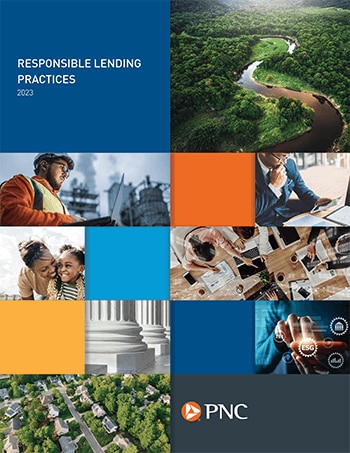The content in PNC’s corporate responsibility materials, including our Corporate Responsibility Reports and Newsletters, is accurate as of the date of each such report. Updates or changes to any of our corporate responsibility materials will be reflected in the online version of such report, which can be found at www.pnc.com/csr. Our corporate responsibility materials should be read in conjunction with our latest Annual Report and our subsequent filings with the Securities and Exchange Commission (the “SEC”), all of which contain additional information about our company and can be found at www.pnc.com/investorrelations.
Our corporate responsibility materials use certain terms, including those that the GRI sustainability reporting guidelines refer to as "material topics” or “priority topics,” to reflect the issues of the greatest importance to PNC and our stakeholders. Used in this context, these terms should not be confused with the terms "material" or "materiality," as defined by or construed in accordance with securities law, or as used in the context of financial statements and financial reporting. PNC’s corporate responsibility materials contain forward-looking statements, including anticipated goals and targets, based on the current beliefs and expectations of PNC’s management and subject to significant risks and uncertainties, many of which are beyond PNC’s control. (PDF) Read our disclosure on environmental targets and use of voluntary carbon offsets.
Any forward-looking statements contained in our corporate responsibility materials should not be unduly relied upon, as actual results could differ materially from expectations. For more information about such statements, please refer to the "Forward-Looking Statements" and "Risk Factors" sections of our latest Annual Report and our subsequent filings with the SEC.
No reports, documents or websites that are cited or referred to in PNC’s corporate responsibility materials shall be deemed to form part of such materials. PNC is not responsible for the information contained on third-party websites, nor do we guarantee their accuracy and completeness.
These materials do not constitute offers or solicitations or recommendations for any investment products or strategies.




